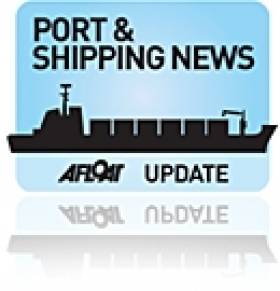Displaying items by tag: Ship Security
#MarineNotice - Marine Notice No 17 of 2013 from the Department of Transport, Tourism and Sport (DTTAS) advises on two minor amendments to ship security plans and on-board retention of security records, in accordance with Regulation (EC) No 725/2004 and the International Ship and Port Facility Security Code (ISPS Code).
Firstly, and with immediate effect, there is no requirement to inform the Marine Survey Office of minor amendments to ship security plans.
Such minor amendments include amendments to contact details of shipping company personnel, and may also include other minor adjustments to the text. Minor amendments are such that the structure, scope and implementing measures contained in the plan are not amended.
If in any doubt the company security officer should contact the Marine Survey Office for further guidance. All amendments should be recorded appropriately.
Secondly, the DTTAS advises that, with immediate effect, the minimum period for the retention of security records on board (relating to drills, exercises, declarations of security, etc) is reduced to three years.
























































